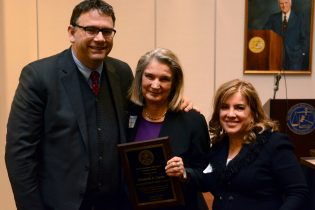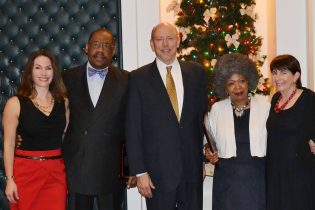
Why Clerk? Insights from Federal Judges, Law Clerks & Practitioners Recap
The Federal Bar Association Chicago Chapter recently hosted an event titled “Why Clerk? Insights from Federal Judges, Law Clerks, and Practitioners,” aimed at providing valuable insights into the judicial clerkship process. This event, held on June 26, 2024, featured a distinguished panel of federal judges, current and former law clerks, and experienced practitioners who discussed the intricacies of applying for clerkships, the benefits they offer, how to craft a competitive application, and what to expect from the experience.
Moderated by Diane Smason, Attorney Advisor to the General Counsel at the U.S. Equal Employment Opportunity Commission, the event also offered attendees 1.5 hours of CLE credit, pending approval.
Why Apply for a Judicial Clerkship
Applying for a judicial clerkship is a significant career decision for many law graduates and practitioners. The panel emphasized the importance of clerkships in providing a unique opportunity to work closely with a judge, gaining firsthand insights into the judicial process. Clerkships help in developing critical legal skills, such as legal research, writing, and analysis. A clerkship can open doors to various career paths, including positions in academia, government, and private practice.
Clerkships are highly valued for the unparalleled perspective they offer on litigation, from motion practice to trial and appellate proceedings. This experience is invaluable for those looking to excel in litigation or judicial roles in the future.
Exploring the Benefits of a Judicial Clerkship
The benefits of clerking extend beyond immediate professional development. Former clerks often enjoy lasting professional relationships and mentorships that can significantly impact their careers. The connections made during clerkships often lead to professional opportunities and career advancement. Additionally, the prestige of having served as a clerk can distinguish a candidate in a competitive job market.
Clerkships are highly regarded by employers and can significantly enhance a resume. The analytical and writing skills honed during a clerkship are assets in any legal career. Clerkships also offer unique mentorship and guidance, instrumental in shaping a clerk’s professional path.
Crafting a Competitive Judicial Clerkship Application
Creating a compelling application for a judicial clerkship requires strategic planning and attention to detail. Successful applicants often have well-crafted resumes and cover letters tailored to each judge’s preferences and court’s jurisdiction. Strong letters of recommendation from respected legal professionals are crucial, as they vouch for the applicant’s skills and character.
Applicants should demonstrate their legal research and writing abilities through high-quality writing samples. Gaining practical legal experience through internships and moot court participation can bolster applications. Networking with current and former clerks and attending clerkship fairs are also effective strategies for securing a clerkship.
What to Expect from the Judicial Clerkship Experience
Once selected, clerks can expect a challenging yet rewarding experience. The day-to-day responsibilities of a judicial clerk include researching legal issues, drafting opinions, and assisting the judge during court proceedings. Clerks are often tasked with critical legal research that directly influences judicial decisions, providing a sense of responsibility and accomplishment.
The collaborative nature of the work and direct feedback from judges enhance professional growth. Working in a fast-paced legal environment helps clerks develop time management and problem-solving skills that are essential in any legal career. Clerks often become trusted advisors to judges, contributing to significant legal opinions and decisions.
Key Takeaways from the ‘Why Clerk?’ Event
The “Why Clerk? Insights from Federal Judges, Law Clerks, and Practitioners” event was co-hosted by the American Constitution Society Chicago Lawyers Chapter and the Federalist Society Chicago Lawyers Chapter. It provided attendees with a comprehensive understanding of the judicial clerkship process, its benefits, and practical advice on crafting a successful application. With over 80 attendees, the event was a testament to the growing interest in clerkships and their value in the legal profession.
The event concluded with a Q&A session, allowing attendees to engage directly with the panelists and gain further insights. This session underscored the collaborative effort of the legal community to support aspiring clerks and enhance their professional development. Overall, the event highlighted the importance of judicial clerkships and their role in shaping successful legal careers. By participating in such programs, legal professionals can gain valuable knowledge and skills, ensuring their continued growth and contribution to the legal field.
Do you want to stay involved with the Federal Bar Association Chicago Chapter? Explore our upcoming events and educational opportunities for attorneys!

















